Surviving Summer: How To Prevent Heat Exhaustion When Your AC Goes Down
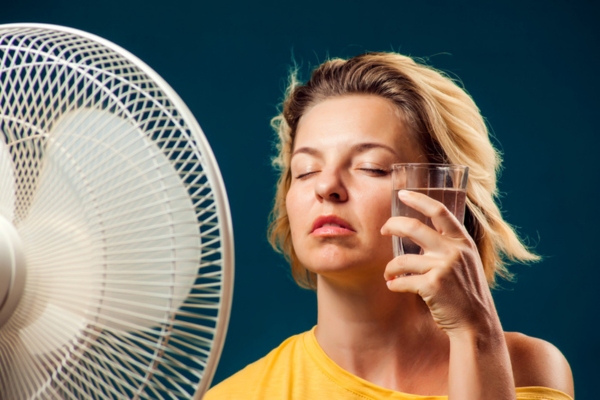
As summer begins, it’s vital to be aware of the health hazards associated with rising temperatures, including heat exhaustion. Each year, heat-induced conditions like dehydration, heatstroke, and sunburns are responsible for around 1,300 deaths across the United States. These figures underscore the importance of keeping cool during the hottest periods.
Ensuring your HVAC system is well-maintained protects you from the risks of extreme heat and guarantees a more pleasant and safe season. However, there are instances when an air conditioner might fail, resulting in a swelteringly hot and humid living environment at the height of summer. In this article by R.F. Ohl, we will explore various methods to stay cool should your air conditioning system break down.
Ways to Keep Cool Without Air Conditioning
Contents
- Ways to Keep Cool Without Air Conditioning
- Common Causes of Air Conditioner Malfunctions
- Contact Professional HVAC Services Right Away
- Strategic Use of Cooling Fans
- Cold Showers for Rapid Cooling
- Hydration to Combat Heat-Related Illnesses
- Choosing Cooler Lower-Level Areas in High Heat
- Reducing Indoor Heat by Limiting Appliance Use
- Utilizing Indoor Plants for Natural Cooling
- Strategic Ventilation with Window Management
- Sun Blocking Techniques for Cooler Indoor Environments
- Selecting Appropriate Clothing for Summer Heat
- Conclusion
- Contact R.F. Ohl for Your HVAC Needs
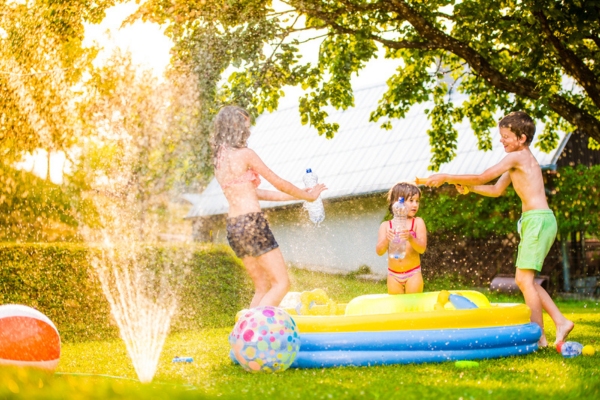
An air conditioner breakdown during the peak of summer isn’t just a nuisance—it poses significant health risks. While many problems can be prevented through regular maintenance, it’s crucial to have backup cooling strategies.
This section outlines essential techniques to alleviate heat discomfort and safeguard your health when your air conditioner is down. It also emphasizes the significance of yearly air conditioner maintenance to minimize the likelihood of unexpected failures.
Keep cool all summer with R.F. Ohl’s comprehensive air conditioning system maintenance services. Schedule your tune-up today to ensure peak performance.
Common Causes of Air Conditioner Malfunctions
For best efficiency, the US Department of Energy advises setting your air conditioner thermostat to 78 degrees Fahrenheit in summer. Despite this, disruptions can still occur in your air conditioning system. For example, summer storms can cause power outages that stop your AC from working without an alternative power source.
Additional frequent issues are a lack of regular HVAC maintenance, high usage demands, older air conditioning units, or cooling systems that must be correctly sized for the space. Arrange for an air conditioner tune-up every spring to preemptively address potential issues before the summer heat peaks.
Even with these measures, there’s still a chance of a breakdown, which could expose you and your family to heat-related conditions like heat exhaustion and heatstroke. The advice below delivers practical tips on remaining cool and secure even if your air conditioner is not functioning or has broken down.
Contact Professional HVAC Services Right Away
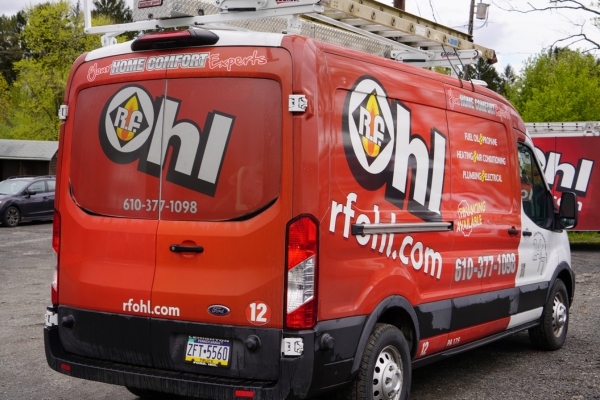
If your air conditioner malfunctions, you must contact an HVAC professional, such as R.F. Ohl, immediately. An experienced technician can swiftly identify and resolve the issue, possibly getting your system up and running again within a few hours, depending on the complexity of the problem. Some repairs may take longer if parts need to be ordered or replaced or if installing a new cooling system is necessary.
In the meantime, keeping your environment cool is essential for you and your pets. Utilize alternative cooling methods to mitigate heat stress until your air conditioner is fully functional.
Need a new air conditioning unit? Let R.F. Ohl recommend the perfect system for your home’s needs and budget. Request your free in-home estimate today.
Strategic Use of Cooling Fans
Using fans strategically is another effective way to manage indoor temperatures during the summer, mainly when air conditioning is unavailable. Placing fans near windows at night can draw cooler outdoor air into your home, boosting the natural cooling effect.
In daylight hours, arrange fans inside your home to establish a cross breeze by positioning them opposite each other. This setup helps circulate the cooler air drawn in at night and ensures even distribution throughout your living areas.
Cold Showers for Rapid Cooling

During the peak of summer heat, cold showers are an immediate and efficient method for cooling down. This approach helps rid your body of excess heat and provides a refreshing respite from the oppressive temperatures. Taking multiple cold showers throughout the day reduces your core temperature and improves your comfort and well-being in hot conditions.
Is your AC struggling in the summer heat? Trust R.F. Ohl for fast and reliable air conditioner repairs. Contact us now!
Hydration to Combat Heat-Related Illnesses
Staying hydrated is essential in dealing with summer heat. Higher temperatures make your body sweat more to cool itself, resulting in substantial water loss. Experts at Pennsylvania State University warn of the dangers of dehydration if these fluids are not replenished.
According to guidance from Harvard Medical School, consuming at least eight glasses of water daily is vital for maintaining proper hydration levels. Keeping hydrated is crucial in preventing severe conditions like heatstroke and heat exhaustion, which can arise from prolonged exposure to excessive heat.
Choosing Cooler Lower-Level Areas in High Heat
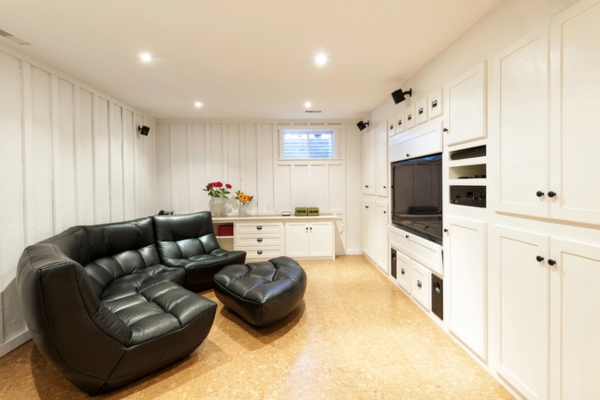
In the summer, the upper floors of a home often heat up more than lower levels due to their proximity to the roof and the natural rise of warm air. To keep cool, it’s wise to spend the majority of your time in the cooler, ground-level, or basement areas of your house.
Reducing Indoor Heat by Limiting Appliance Use
Keeping your home cooler in the summer, mainly when your air conditioning is out, can be aided by minimizing the use of heat-producing appliances. Notable examples include ovens, stoves, toasters, dryers, washers, vacuum cleaners, and computers.
While these devices are helpful in better conditions, their heat emission becomes problematic during warm periods, mainly when cooling systems are down. Avoiding their use can significantly decrease the heat buildup inside your home.
Utilizing Indoor Plants for Natural Cooling
Incorporating indoor plants into your home is a natural way to help cool the air. Plants like areca palm, snake plant, and aloe vera contribute to cooling by releasing moisture into the air through transpiration, effectively lowering indoor temperatures.
Strategically place these plants around your home to enhance their cooling impact. In addition to cooling, these plants also improve the aesthetics of your space and purify the air, leading to a fresher and more comfortable indoor environment.
Strategic Ventilation with Window Management
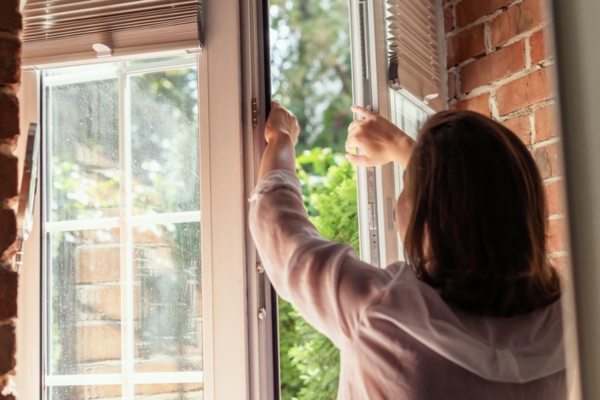
Effective home cooling during summer can be achieved by taking advantage of natural temperature differences between day and night. According to the National Renewable Energy Laboratory (NREL), temperatures typically decrease at night, even in the height of summer.
Make the most of this by opening your windows in the evening to let in the cooler air, allowing it to circulate throughout your home. Conversely, keep your windows closed during the day to block out the warmer air, particularly if they face west, where sun exposure can significantly increase indoor temperatures.
Sun Blocking Techniques for Cooler Indoor Environments
Simply closing windows is inadequate to effectively counteract the heat from direct sunlight, particularly through windows facing the sun. Blocking sunlight from entering is crucial to prevent indoor warming. Enhancing your home’s coolness can be achieved by shutting curtains and blinds, which substantially block and absorb solar radiation. For an even more effective method, covering your windows with tin foil can reflect sunlight away from your interior, helping maintain cooler temperatures inside during the intense summer heat.
Selecting Appropriate Clothing for Summer Heat
Choosing the proper attire for summer goes beyond just wearing less clothing. According to National Public Radio, exposing more skin can accelerate water loss by enhancing evaporation.
Choose garments made from natural fibers such as linen or cotton, which are excellent for regulating body temperature and retaining hydration. These fabrics absorb sweat and reduce the rate of evaporation, thus helping to keep you hydrated for more extended periods. On the other hand, it’s best to steer clear of tight-fitting clothes made from synthetic materials like nylon and polyester, as they can trap heat and raise your body temperature.
Conclusion
In the event of an air conditioner breakdown during the warmer months, it is critical to consult a skilled HVAC technician quickly. Additionally, the cooling strategies outlined in this article can help effectively manage indoor temperatures and prevent heat-related health problems. Regular maintenance is critical to reduce the risk of unexpected air conditioner failures, and ensuring your unit is appropriately sized for your space can prevent undue stress on the system.
Contact R.F. Ohl for Your HVAC Needs
R.F. Ohl provides top-notch heating and cooling services across Northeastern Pennsylvania. Our team comprises highly trained and professionally certified technicians adept at performing HVAC tune-ups, repairs, installations, and replacements. Each technician has the expertise necessary to service your HVAC system accurately.
We offer the region’s most competitive prices for heating and cooling services. Our maintenance services enhance your comfort, boost your system’s energy efficiency, and reduce your cooling costs. Should you require HVAC repair or a replacement system, we can help you select the ideal solution for your home while adhering to your budget. We stand behind our work with a satisfaction guarantee. To book a service appointment and receive a free, in-home estimate, call R.F. Ohl today.
Click here to contact us today or give us a call at (610) 377-1098 if you have any questions. Click the link to view our service area.
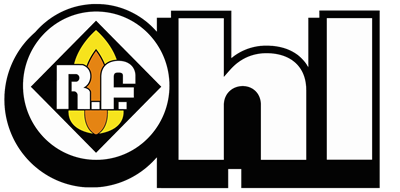
Related Articles: